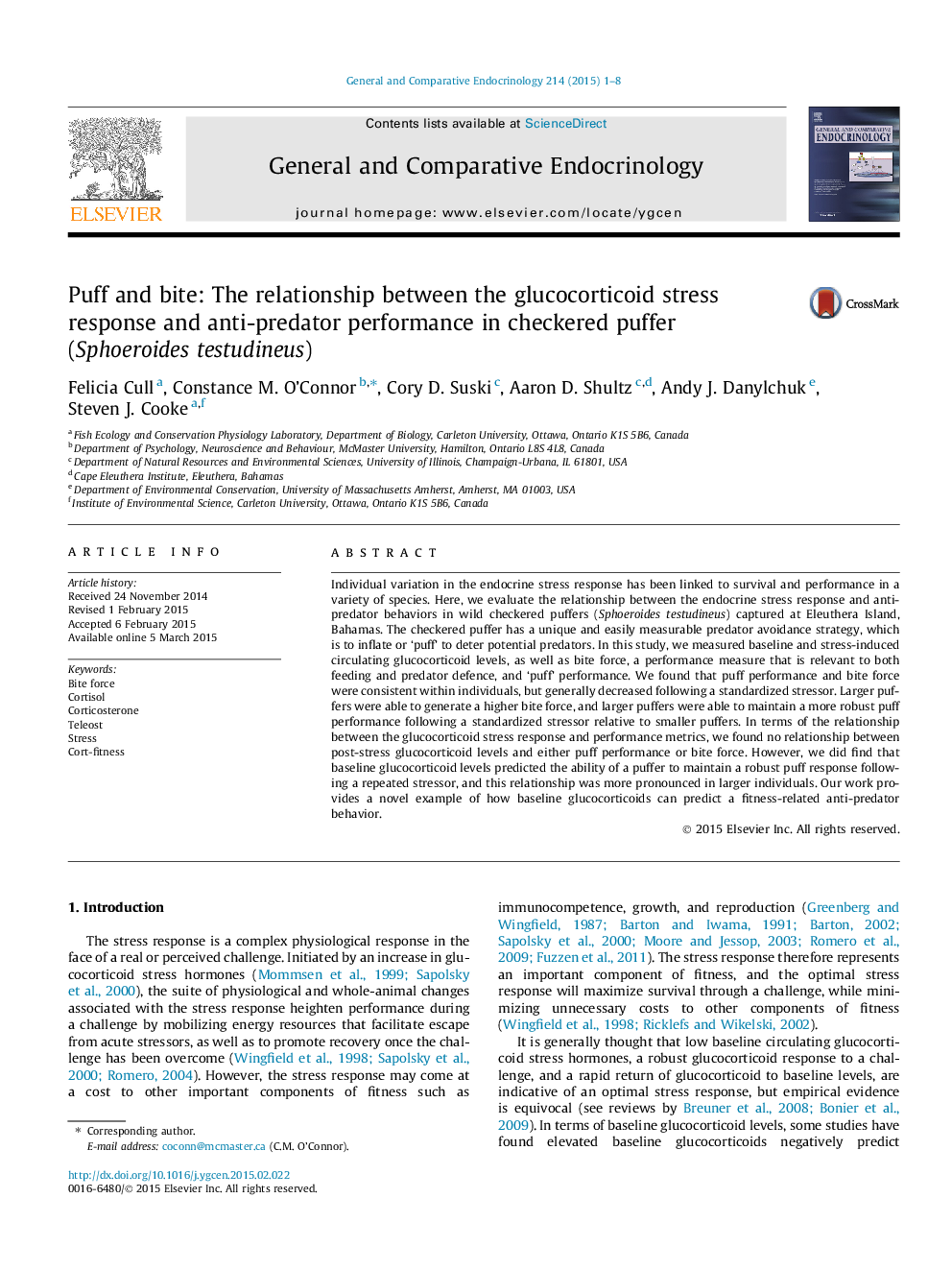| Article ID | Journal | Published Year | Pages | File Type |
|---|---|---|---|---|
| 2799969 | General and Comparative Endocrinology | 2015 | 8 Pages |
•We examine the relationship between the endocrine stress response and anti-predator performance.•We measure baseline and post-stress cortisol, bite force, and ‘puff’ score in checkered puffers.•We find no relationship between post-stress cortisol and either anti-predator behavior.•Baseline cortisol is positively correlated with the ability to maintain a robust ‘puff’ score.•Larger fish have a stronger relationship between baseline cortisol and ‘puff’ score.
Individual variation in the endocrine stress response has been linked to survival and performance in a variety of species. Here, we evaluate the relationship between the endocrine stress response and anti-predator behaviors in wild checkered puffers (Sphoeroides testudineus) captured at Eleuthera Island, Bahamas. The checkered puffer has a unique and easily measurable predator avoidance strategy, which is to inflate or ‘puff’ to deter potential predators. In this study, we measured baseline and stress-induced circulating glucocorticoid levels, as well as bite force, a performance measure that is relevant to both feeding and predator defence, and ‘puff’ performance. We found that puff performance and bite force were consistent within individuals, but generally decreased following a standardized stressor. Larger puffers were able to generate a higher bite force, and larger puffers were able to maintain a more robust puff performance following a standardized stressor relative to smaller puffers. In terms of the relationship between the glucocorticoid stress response and performance metrics, we found no relationship between post-stress glucocorticoid levels and either puff performance or bite force. However, we did find that baseline glucocorticoid levels predicted the ability of a puffer to maintain a robust puff response following a repeated stressor, and this relationship was more pronounced in larger individuals. Our work provides a novel example of how baseline glucocorticoids can predict a fitness-related anti-predator behavior.
